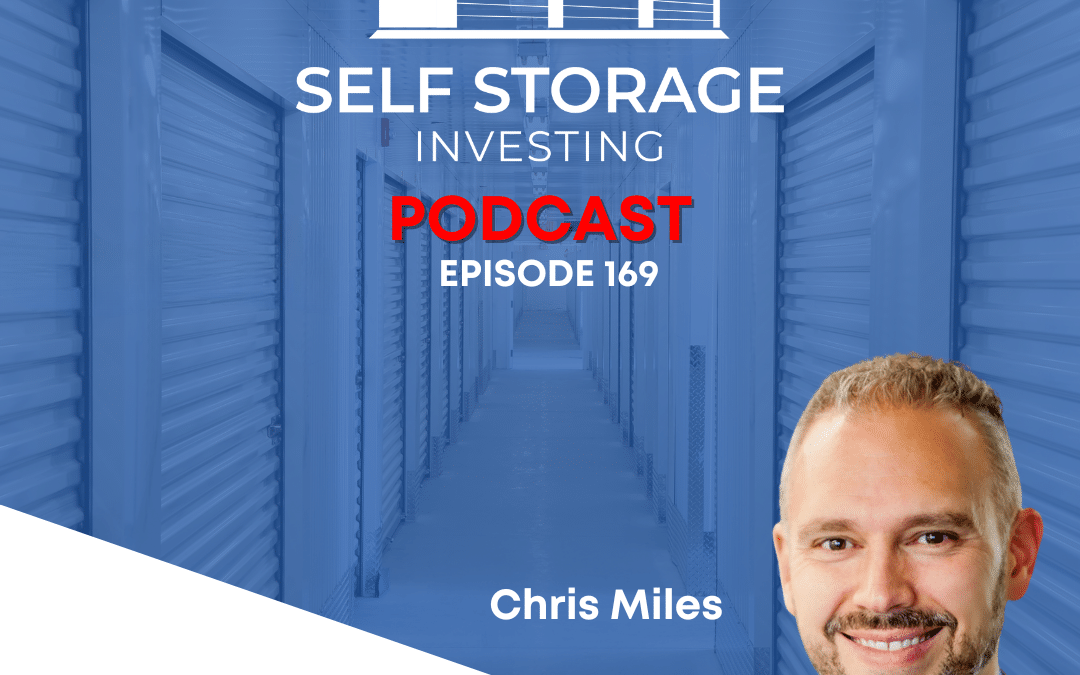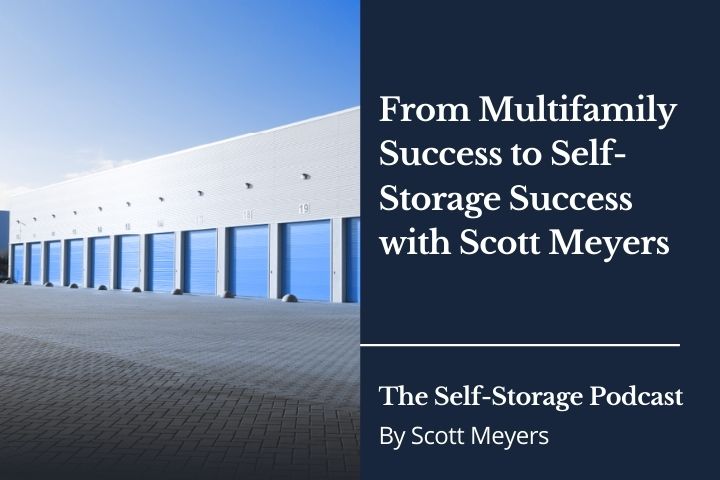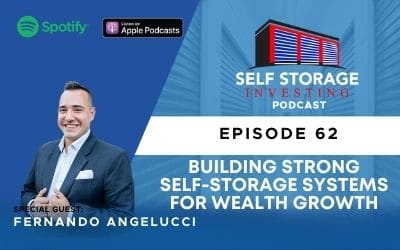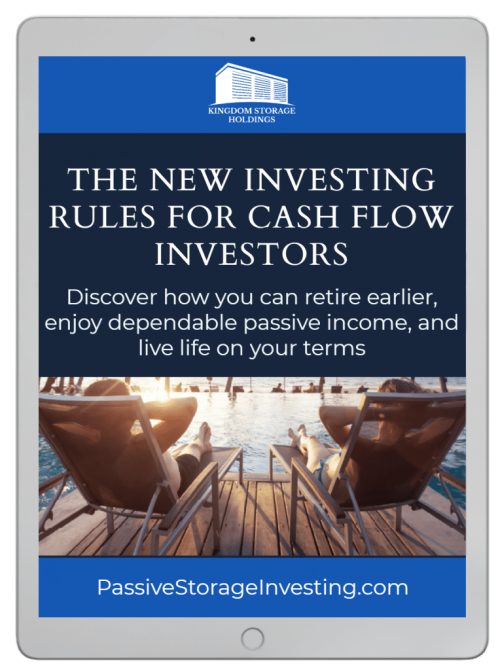The revisions to the SBA rules make it easier for borrowers to meet the 10% equity requirement for loans, allowing seller debt to count towards the full 10% equity injection.
Other changes include the acceptance of Home Equity Line of Credit (HELOC) or cash-out refinance of real property as equity, and the simplification of debt refinance.
And a newly implemented rule limits loan terms for partner buyouts to 10 years.
WHAT TO LISTEN FOR
5:18 Use of HELOC and Cash-out Refinance for Equity
6:30 Clarification of SBA 7(a) vs. 504 Loans
17:40 SBA’s New 10-year Loan Term Limit
26:21 REITs Management Approval
Leave a positive rating for this podcast with one click
CONNECT WITH GUEST ANNE MINO
Website | LinkedIn | Email
CONNECT WITH US
Website | You Tube | Facebook | X | LinkedIn | Instagram
Three key steps to drive successful investments:
- Focus on your primary source of income,
- Understand the intricacies of tax-saving techniques
- Wrap your head around the powerful concept of ‘infinite banking’.
Addressing common fears and the noise of misinformation, Scott and guest Chris Miles emphasize the value of surrounding oneself with knowledgeable and successful individuals, encouraging a bold, yet calculated approach to personal finance and investment in 2024’s dynamic market.
Listen For
4:23 Doubling Down: A Strategy for Growth
11:22 Get Lean, Get Liquid, Get Out
17:19 Deciphering the Cashflow Index
27:40 Infinite Banking vs. 401K
Leave a positive rating for this podcast with one click
GUEST CHRIS MILES
Website | You Tube | Facebook | X | LinkedIn | Instagram
CONNECT WITH US
Website | You Tube | Facebook | X | LinkedIn | Instagram
Follow so you never miss a NEW episode! Leave us an honest rating and review on Apple or Spotify.
Episode Transcript
Scott Meyers (00:00):
You really got to focus on what’s your real cash cow, right? It’s protecting that economic engine.
Intro (00:12):
This is the Self-Storage Podcast where we share the knowledge and skills from the industry’s leading investors, developers, and operators to help you launch and grow your self storage business. Your host, Scott Myers, over the past 18 years has acquired, developed, converted and syndicated nearly 5 million square feet of self storage nationwide with the help of his incredible team@selfstorageinvesting.com, who has helped thousands of people achieve greatness in self storage.
Scott Meyers (00:49):
Hello everyone, and welcome back to the self Storage Podcast. I’m your host at Scott Meyers. In today’s episode, we have Chris Miles back talking to you more about ways to invest not only actively, but also passively and how to approach this market with a focus at this time on how to accelerate your cashflow and your income for reinvestment so you can get to that place where you can then invest at passively. Chris, welcome back to the show.
Chris Miles (01:13):
Im so happy to be back again
Scott Meyers (01:18):
I enjoyed our last episode, and folks, if you didn’t listen to part one, you’ll see it in the show notes. Go back and take a listen to it. It sets the foundation for today, but nevertheless, as a standalone, Chris, we talked about, we constantly talk about, as we look at the market right now and as we look at the market over the past few years with increasing prices for us in self storage and other asset classes in the real estate, construction costs have gone up astronomically. Payroll. I mean, the cost of everything has gone up as the cost of energy has gone up and inflation has really been into our profits and it’s really affected everything and to sometimes levels and degrees that we didn’t anticipate ahead of time. But what I find is that, and what we’ve seen it seems that is speed is really at the heart of all of this. And we’ve had a leveling off of interest rates. We’ve had a leveling off of inflation, if you will, and then therefore construction costs and the cost of doing business. And so as long as we got those in place and there’s not these wild swings we can budget, we can take a look at a project or an asset that we’re going to purchase with a fair degree of confidence, say that here’s what it looks like now, it’s not going to change that much at 90 days, and we can predict where it’s going to go in the next 1, 2, 3, 5 years as we hold it.
(02:31):
But what throws that off, I think more than anything, including those outside factors that we just mentioned, is the speed at which we get it done. If we have delays, delays kill us, and it blows our model, it blows our projections, it really messes everything up. And so that factors into, I think all areas and all approaches to investing. And so I know that’s something that you hit on as you are talking with folks that are working with you at Money Ripples. Tell me how speed plays out in your game and how you’re advising folks as to what the importance is of it and why they need to go as fast as possible.
Chris Miles (03:04):
Speed is everything, right? I mean, you did a great job introing this because inflation for example, I mean even when we talked about this in the last episode, right? 3% rule.
(03:14):
Well, why is it three instead of four? Well, one because returns are less than the market than they used to be. Two people are living longer, three inflation’s been worse since 1974. The whole 4% rule, I dunno, we hear people talking about the whole financially independent, retire early or they talk about the 4% rule, how you can live. Those numbers came from the early 19 hundreds and then ended in 1974 when he did those numbers, those calculations. So that was pretty much the time when we were on the gold standard. We’ve been off the gold standard since that time, and so inflation has been worse since then, which is why that numbers had to come down. So yeah, speed. I tell people all the time, the best way to beat inflation is do it faster instead of having to figure out how you’re like a dalmatian chasing a firetruck, just trying to catch up to it instead, what if you get faster than the firetruck?
(04:05):
And so that’s where we always come back to cashflow. We come back to has income, getting your money to work for you now versus trying to accumulate because everything taught you in the financial world is about accumulation. However, we want acceleration and the way to do that is by creating predictable income. Now that’s the best way to do it.
Scott Meyers (04:23):
As you’re saying that, Chris, I think the 3% rule, the 4% rule, it seems like I can recall going back to maybe junior high where my grand plan and my friend’s grand plan is, I’m going to work really hard and I’m going to earn a million bucks and I’m just going to live off the interest. That’s what everybody had said forever. I mean, we were giving each other financial advice back then, so no surprise that’s been around since the 19 hundreds. It’s probably just been reiterated in conversations by adults as we were growing up, only to find that it was not true and they were ill-advised.
(04:53):
Well, I wanted to do a deep dive in this in part two to our first podcast. We touched on the importance of at least for myself feeling comfortable and after hearing the advice, maybe just giving me permission to say, Hey, I can double down in my own industry, my own business. I don’t have to go out and look at multiple other asset classes or shiny objects. Because again, I think as entrepreneurs and type A folks, we’re always looking for other opportunities and we get jazzed about what other folks may be doing and maybe just as a gut check to either affirm what we’re doing is right or to confirm that, hey, maybe we should be taking a look at something else. But lo and behold, we’ve landed at the place where we love cell storage. We know how to do it, we can predict our returns. Our returns are great in this asset class. And as you mentioned, if I had to learn something all over again, if I’m going to do it actively or even passively, there’s a learning curve and that’ll just slow you down and that I’ll put me behind again. So let’s talk about what it means to double down in your own business or just focus as the acronym says, follow one course until success. How are you advising folks at Money Ripples as to why the importance of focusing on maybe one or two asset classes or businesses?
Chris Miles (06:08):
Yeah, you always hear about diversification is what’s essential, right? And I shared the story about my brother-in-Law where I told him he should be diversified after he said he could make way better returns to his business. They could with a mutual fund maybe if he could even make that much in a mutual fund, which was not even close. And he was right. You really got to focus on what’s your real cash cow. It’s protecting that economic engine and could be somebody who just has a job. How you get better at your job, double down there, increase your skillset. Even Warren Buffet said a few years ago, he said The best way to fight inflation is to increase your skillset, to get higher pay. It’s no different if you’re a business owner. It’s the same thing. How do I create value for other people? How do I create value for my employer?
(06:52):
How do I create value for my customers or my clients? That should be the question you’re always asking with your active role, whether it’s a business or a job, focus on that. Double down there, you’ll make more money. It’s funny, I didn’t even think about this memory, but 2020, right? We had all of a sudden more time on our hands because we couldn’t do anything anymore. And I remember I was getting a little bit antsy and I thought, well, maybe I should go buy a franchise. And so I went to one of my friends, Kim Daly, and I said, Hey, be my matchmaker. Let’s see if we can find a franchise that fits my passions and my skillset. And because I didn’t want to be an active person in the franchise, I want to be able to put money in, have everybody else run it, so to speak, and then I get the profits right?
(07:36):
Well, as I’m looking at it, and I went through that whole process, I realized it wasn’t really that passive. It was still, even if it’s the first 90 days I’m being active. And I realized, I said, wait, I could either be active there and get this other stream of income, or I can double down and be active in money ripples and make that better. And I chose the latter. And I’ll tell you that was one of the best decisions ever. When I decided I was actually going to hire people, I was actually self-employed until about 2021. I started bringing people in to delegate and take these off my plate to actually create a business that’s less dependent upon me. And I’ll have a team of nine people including myself that’s on that team and that rate there, that investment in those people has created huge dividends in my business.
(08:24):
But I don’t stop there. I take the profits from my business. I do put some of the profits back in, but you don’t want to put a hundred percent of all your profits back in the business. That means you’re no longer profitable. So you need to take some of that money home, take some of that money home personally, keep it there, protect it, and then deploy it and use it. And that’s why I will take that money and deploy it to other investments. So I crave multiple streams of income and it protects me in a lot of ways because one, I’ve got plenty of cash reserves to last at least a year for myself and my family. Two, I got other streams of income coming in. So if there’s another 2020 where they say that my business is no longer necessary, you remember that whole stupid thing about if you weren’t an essential business then you should had shut down for two months. That was dumb. And so knowing that I had other students of income coming in, even though they didn’t shut me down, I know they could shut us down. They proved that they could shut us down at any point for any reason, and I want to make sure I was protected from that. And so that’s why, yes, I’ll double it down and make sure my business first and foremost, but I also make sure that I have some of that money, some of those profits going to buying other streams of income too.
Scott Meyers (09:31):
I’ll send a shout out to Micah Malowitz and Prophet first, his book If those of us out there in Storage Nation, if you haven’t read that book, that was, I don’t want to say it was a life changer, Chris, but certainly a mild game changer in the strategy in our plan, if you will. And really the essential, as you can imagine, is doing what Chris just mentioned, and that is taking some of those profits out. Otherwise it’s not an investment. It’s not profitable if you don’t take the profits, some profits off the table and set ’em aside, whether that’s in savings or to reinvest in some other opportunity and then plow the rest back into the next good investment that’s going to generate those returns. And for me, Chris, my wife, knows that I’ll plow everything back into our own business in terms of reinvesting just because I’m passionate about it.
(10:17):
I know what we can do. And so I followed his prescription and I don’t even know where it is. I don’t even know how much is there, and I can ask, but I won’t always get a straight answer, which is probably good. But we send everybody to Money Ripples after our first episode, and a lot of folks are very interested in not only following you, but the statement as I have here, as you mentioned, I want to get it right, get lean, get liquid and get out. That for us, for an asset like a real estate and self storage when we’re getting ready to sell, it’s exactly what you do when you’re preparing to sell any business. You’re going to get lean, you’re going to lower your expenses as much as possible without fore profitability, and then you’re going to get real liquid, which means that you’re going to clean up the property in terms of the paper on it and the ability to be able to transact and sell it and then get out and redeploy as we also talked about in the last episode. So that’s how we approach it from a hard asset standpoint. But tell me what that means. Get lean, get liquid, get out. What does that look like for passive investors and how you advise folks?
Chris Miles (11:22):
Yeah, even from a personal financial standpoint, that’s a big deal. I mean, getting lean. So here’s the thing, I don’t think people should live on rice and beans. We’ve had people shame us for years, experts. So-called experts, right? Shaming us, telling ’em to live on rice and beans, cut out that latte, don’t go on those trips, sacrifice your entire life, even if you might die tomorrow, doesn’t matter because your family will be happy you kept them debt free, all that kind of crap. And I think I do believe in wife stewardship. I don’t that we should be just blowing money and things like that, but the truth is, and I’ve actually looked at statistics, the minority of people are spenders in this country, even though there’s a lot of financial pundits that’ll tell you, oh, hardly anybody saves, you got to be different. It’s like, no, actually, of those that saving 4 0 1 Ks that are eligible, 52% saving their 4 0 1 Ks, spenders don’t put money on their 4 0 1 Ks, I’ll tell you that much.
(12:17):
They do not care about their 401k. They will blow it, right? But 52% of those eligible will put in money on a 401k, and by the way, I’m eligible money on a 401k, but I don’t like ’em because I wanted to retire. Four oh was 60, so I don’t use that vehicle. It’s not the right vehicle if we want to retire early, and so there’s lots of us that don’t contribute out of choice. So that means the majority of us are actually savers and or investors. So understanding that getting lean means being a wise steward in spending money. You can even say investing money, but putting money in places where you actually want it. It’ll enrich your life, make your life better. Don’t spend money on things that don’t. I’ll give you an example. I had a client one time where we’re looking at all their itemized expenses.
(13:02):
We’re going through a look at their cashflow statement and everything personally. We even looked at their business too a little bit too, but as we’re looking at personal stuff, I saw he was spending $600 a month on alcohol. Now, again, I don’t try to judge. I mean, if somebody has grocery bills, sometimes it’s like 600 a monthly grocery bills, sometimes it’s 1600 a monthly grocery bills I don’t judge because what if they’re eating organic? Well, good, they’re eating healthier foods. It’s going to cost more. Great. Maybe they got a bigger family. Maybe they have a smaller family. It’s not about the number. It’s more about is this productive? Is this really useful? Well, in this case, $600 of alcohol, I had to ask. I was like, so tell me, I see you put a seed for consumptive. We have productive consumptive and destructive, so PC or D, and he put it as C.
(13:48):
His wife put it as D, and she said, no, it’s destructive to our family. He drinks way too much. And I said, okay. He’s like, yeah, I probably do. I have a problem. I said, here’s the deal. Instead of 600 a month, what if we cut it down to a hundred to 200 a month? Let’s try that. Let’s just see if we can cut it down. We don’t have to go cold Turkey here. We don’t say you have to go dry. Just try and see what we can do there. And those extra few hundred dollars a month is now money could be invested, right? I did have one woman that she was overspending a lot on the food side. She was eating out charging 5,600 a month just eating out. That’s not even including grocery shopping, which was over a thousand a month. So in total, she was spending about $7,000 a month just on food.
(14:36):
So same thing. I was like, okay, you only have a family of four her. Obviously you’re going out and I don’t even know how you’re spending that much money, but let’s get this under control. So I put her down to a thousand dollars a month of a spending limit. I don’t like to say the word budget. I think it’s more of a spending plan, right? It’s like thousand a month. We save 4,600 a month on your eating out by rearranging things, and by the time shit was all said and done, and we even did that, we freed up some money on tax savings too. We freed up like $70,000 a year just doing that. So again, it’s not about being cheap. It’s not that at all. It doesn’t mean you don’t go on that vacation. It just means how can we be wiser of the money that we have and how do we make sure we have as much money freed up so then we can be more liquid? And that’s what the get liquid is. We talk about getting the money liquid and then getting it out, deploying it into investments that create more income for you, that creates more cashflow and you have more to get liquid and more to get out. And so it just keeps creating this cycle that keeps building on itself like this big snowball.
Scott Meyers (15:40):
yeah, there’s certainly a couple of ways that you can approach a budget and if there’s some areas that are, I guess out of norms or something that stands out when somebody like yourself has expertise to be able to step into this situation and say, well, hey, maybe the reason why you’re either still in debt or your household is in the red or why you’re not able to save or investor get ahead is because this category is, well, maybe a little out of line from what I normally see. And I commend you, especially for the one that jumped off the page in which the gentleman was spending a little too much more in alcohol. And I know you glossed over that and treated it as an investment decision and advice on that, but thank you for stepping up and saying the hard things because you probably made an impact in that family that is a much greater than just a financial by getting dad to maybe back off his alcohol consumption as well.
(16:28):
And so there are some things outside of just helping people reach their financial goals that we can assist with as well. But let’s assume now that aside from looking at a budget from that standpoint, now we’re getting to the place where it’s making the decision of paying off debt or as you mentioned, the rice and beans, and we’re going to do this until everything is paid off and for seeking everything else, including our own enjoyment now getting to the place where we’re taking a look at the dollars and our debt and what to be able to invest and how quickly to pay that offer, how to allocate it. You talk about the cashflow index is really kind of what we’re getting at here, and I know that’s something there is a big piece of how you assist people. So how does that gauge work? What does a dashboard look like if we begin to pull some different levers and dials?
(17:16):
How do you guide folks and how do you advise them to be able to take this approach?
Chris Miles (17:19):
Yeah, that’s an interesting conversation because there’s a lot of real emotion behind that and there’s a lot of people very passionate about it. The biggest first point I would say about debt is to not fear it, respect it, but don’t fear debt because debt in and of itself is not evil. If it were so evil, why are all these people getting student loans? I mean, even if you were going to college and you got a student loan, you did it for a reason. Why would you get a mortgage if it’s so evil? Why would Dave Ramsey tell you to go refinance your mortgage if debt was so evil? Even though he tells you debt’s evil and there’s a lot of double standards I see in the world, but the truth is that there is no debt per se.
(17:55):
The only time you have debt is when you have negative equity, right? Because if you look at it from an accounting perspective, when you have a house that’s worth 400,000 but you owe 300,000, you’ll say you have a hundred thousand of equity, but that’s not debt debts. If you have the opposite situation, kind of like the great recession that we went through where the house is worth 300,000, but you owe 400,000, then you actually have a hundred thousand not of negative equity, you’re not upside down. Well, you’re upside down, but we call it that debt. That’s actual debt, a hundred thousand because if you were to sell off all your stuff and you don’t have any more debt left, then you’re debt free. So understand that even though you may not be loan free, you can still be debt free. And so I tell people, don’t fear it, but do respect it.
(18:39):
It can hurt you, but it can also help you. So for example, the cashflow index. So the situation I was in, I mentioned this a little bit in the last episode, but I didn’t finish the story. So during that last recession, I went pretty big in the hole right now, I wasn’t in the hole initially, but because my cashflow store started going negative because we had started a brand new business and I was pumping a lot money into the business and that we were focused on real estate flippers who were going broke, who couldn’t pay us anymore. Also the partner I was working with said, Hey, I know you got all these other streams of income, cut ’em off. Even though that’s exactly what we taught, I realized looking back, I was trying to be a team player, but I allowed my boundaries to be crossed by saying, oh yeah, I’m going to get rid of my passive streams of income so I could be all in with you buddy.
(19:22):
That’s a dumb thing. So I cut off my income streams. I then also, we had a business we’re sink a lot of money into, and my lifestyle still had run up because I had money coming in. It was air like oxygen. Well, the only time you count breaths is when the oxygen rides out. So I went from millionaire status all of a sudden upside down millionaire. I mean I was over a million dollars in debt because eventually I was in the hole over $15,000 a month and things were sinking fast, values were sinking fast in real estate. And so I stopped teaching people how to get out of the rat race at that time because I can’t teach something I’m not doing. So instead, I started teaching people how to get resourceful. And I remember I was playing the cashflow game, if you remember the Kiyosaki game cashflow.
(20:05):
I was playing the computer version and I played 2 0 2 because 2 0 2 is easier to go bankrupt in than 1 0 1, 1 oh one’s like you go bankrupt, you kind of feel like you’re an idiot. You’re like, dang, it’s almost a perfect world in this game. You still went bankrupt. It doesn’t happen very often, but 2 0 2, there’s a lot of issues that come up. Well, I remember I was trying to think, well, I’ve seen situations here where sometimes it makes sense to pay off my debt, where other situations it wasn’t. I would invest that money and in real life I was in that situation, I had very little cash coming in. Do I pay off the debt to get the guaranteed cashflow or do I invest it to have enough income to help pay for the debt and I needed something to make it even. And that’s where the cashflow index came from.
(20:46):
And so what I do is I take the balance of that loan, that specific loan, you could do this with each loan that you have, take the balance of loan, divide it by the minimum monthly payment, and you’ll get the cashflow index. The lower the number, that’s the lowest number one is the one you pay off first. It’s not about the one with the highest interest rate. Sometimes it can be, but it’s not always. It’s not even about the one that has the lowest balance. It’s about the one that has the lowest cashflow index, the one you pay off first. So let me give you an example what that looks like. Say that you only have is 10,000 bucks and you have two different $10,000 loans and you trying to figure out which one to pay off, well say that one of ’em is a $10,000 credit card at 20% and the payment is 200 bucks a month.
(21:28):
Then you’ve also had this $10,000 car loan that’s at 5%, but it’s at $500 a month. Now, if you were to ask Dave Ramsey, which one is he going to say to pay off if all he had was 10,000 bucks the credit card of the car credit card every time, right Scott? So it’s always the credit card, right? Go pay that sucker off and he’ll usually go for the lowest balance, but if it’s tied, he goes for the interest rate. But I’ve learned from my own hard experience that I wasn’t stressed out by the interest rate. I didn’t like it, but that wasn’t the real stress or the real stress for me was I’m sinking fast. I need to at least I was below paycheck to paycheck, I need to at least get paycheck to paycheck so I can at least avoid getting into more debt.
(22:11):
That payment was the stressor for me, not the interest rate, it was the payment. So look at it from a common sense standpoint. If all I have is 10,000 bucks, do I pay off the $2 month credit card or the $500 a month car loan? Which one’s going to put me in a safer place? It’s the car. Even if it’s a lower interest rate, it doesn’t matter. It’s the car loan that was creating all the stress. That rate there that if you do the math on this, the index 10,000 divided by 500 is 20, while the other one 10,000 divided by $200 a month from the credit card is 50. It’s two and a half times better to pay off the credit card than it was to pay off the car loan. That’s how the index works is I just pay it off and I can always roll a $500 a month payment onto the credit card, pay it off in a year anyways, and not get charged in millions dollars interest like some people believe, right?
(22:57):
You do the math, you don’t really get charged that much an interest if you pay it off quickly. And so that was the epiphany for me right there. So that’s the big difference with the cashflow index is that it really helped me actually pay off over a million dollars of debt and do it in a way that actually helped free up the cashflow faster. I knew I was onto something really special when I was talking to a client. This woman was just fresh out of college and she had credit card debt, she had a car loan, she even had stoop loan debt. And I was going through and calculating each one of these loans and when I looked at it, I said, here’s what I’m going to have you do. I want you to charge up everything you have on this credit card for the next month or so, the money that you would’ve used to pay this normally.
(23:43):
Instead, you’re going to charge a credit card like your food, your gas and all that stuff. You’re going to have to charge the credit card, the money you would’ve spent, otherwise you’re going to use that to pay off your car loan. You’ll actually free up, even though your payment will go up on the credit card a little bit, you’ll still net freeing up about $250 a month. And she’s like, wait, wait, let me get this straight. You want me to basically use my credit card to indirectly pay off my car? I said, I guess so, but the numbers work. And so we did. We paid off the car faster, freed up the cash. And remember, here’s the beautiful thing is that I mentioned you can always roll the cash over the cash flow that you freed up over to the next loan, which of course is great, but here’s the other thing that from a practical standpoint that’s so great about that is that if anything were to happen like an emergency or something happens where maybe you have a reduction in income or you have this unexpected expense, I guarantee you, if cash becomes tight, you’ll much rather pay the lower payment than the higher aim.
(24:43):
And that’s the beautiful thing. Yeah, yeah. You’re not forced to make higher payment. That’s why I’m not a big fan of 15 year mortgages. Dave Ramsey is all about that or tenure. In fact, I shared last episode about the guy that had 700,000 of equity in his investment property. He also had equity in his home and he had it on a 10 year mortgage because again, he wanted to pay it off faster. So he had this high payment and even when he tried to refinance, it would let him unless he extended the term out longer because the payment was too high for his debt to income ratios. And I was like, no, the banks don’t want to do that. If you think about it, banks want you to focus on this cashflow index because that’s the thing that frees up the most cash. If you frees up the most on payments that allows you to be able to make ends meet month to month, that propensity to be able to keep paying and keep going, that’s the real thing that banks want.
(25:31):
They know what healthy cash flow looks like. You just have to start reversing your thinking from poor people, Dave Ramsey, thinking to more like how banks think and look at you from a financial health standpoint.
Scott Meyers (25:43):
And if everything goes a heck in a hand basket, that’s the strategy you’re going to deploy anyways, is to free up cashflow and refinance in a manner that gives you more cashflow, not something that pays down your mortgage a little bit quicker. And at the end of the day, I think people only enter into those 10 and 15 year mortgages because they just lack the accountability in themselves or the discipline to be able to budget. I mean, you can set up a 30 year mortgage and you can just increase the payments, you can increase the principle and make sure that it does go to principle, so you don’t have to go into those very restrictive covenants to begin with.
(26:16):
So let’s touch on another point that maybe there’s some other ways to be able to skin this cad, and that is we’ve all been told to max out our 4 0 1 Ks if we have a W2 income and plow it into the company’s stock, or sometimes they allow us to go into other vehicles, but then if we change positions or if we are freed up to pursue other career opportunities from our employer, now we have this 401k that we can convert to self-directed, and that is Ben, what has been prescribed for many, many years, and it’s a great tool. Now we can invest in other vehicles, other investments, we sometimes can invest in some of our own projects, and that’s not a discussion for this circle, but it’s typically for other people’s investments to invest that passively with that. However, you can’t take advantage of that depreciation.
(27:03):
And so depending upon your situation, there’s other things that can be done, and I know one of those things that you prescribe, or at least is an option or another strategy, is the infinite banking concept and taking those proceeds that you would normally use in a self-directed IRA, but instead become your own bank and invest in life insurance and then you can borrow against to then buy real estate and then be able to take advantage of depreciation and be more liquid. There’s other advantages. So maybe touch on that and talk through that. I know that that could be for another entire episode as well, Chris, but let’s kind of compare and contrast the two if you would.
Chris Miles (27:40):
Well, yeah, let’s talk about that 401k, right? If somebody’s over the age of 60, you could probably fund into a 401k and do what’s called an in-service distribution where they actually allow you to access that cash while you’re working there.
(27:53):
But for the most part, you’re right, Scott, you cannot touch that money without having to borrow it from the 401k and they only let you borrow up to 50,000. Even if you’ve got a million sitting there, they will not let you go over 50,000 or 50%, whichever is less. So it’s very much restricted and like you mentioned, if you roll it over an IRA, which is an option, but you have to either quit or change jobs or get fired, I don’t recommend that strategy to be able to liquidate and get to your money. In fact, I’ll tell you many, many clients I talk to, their biggest stress is, shoot, I have all this money locked in my 401k and I can’t get to it. I can’t invest it in my self storage. I can’t invest it into other kinds of real estate either. I need this money.
(28:34):
I’m like you do, but unfortunately, you better change jobs if you want to be able to get to it. And so the strategy that a lot of my clients will employ instead is they’ll use that infinite banking, which is using whole life insurance, which is the most boring unsexy insurance you could ever find other than just term insurance, death insurance. But in fact, as a financial advisor, I’ll tell you, I actually aided it. I thought it was horrible, not because I knew anything about it, just because that’s what other financial advisors taught me to do. They say, Hey, don’t buy whole life. It’s a waste of money. Invest it in the stock market. Oh, here’s another thing. A PS on the 401k, one of the biggest objections I get from the 401k is, well, Chris, I get that match and that’s free money. So it’s a no brainer.
(29:17):
I get that 50% or the a hundred percent match, that’s a 50 or a hundred percent return, isn’t it? No, it’s not. It is short-term, but it’s not a compounding 50 or a hundred percent return every time I’ve done the math that you could go do calculations like calculator with it, you save it a 401k for 30 or 40 years, it only adds maybe about a 3% or so rate of return to the fund that you’re investing in. Here’s the sad thing, fidelity, most people pick the target date retirement funds at Fidelity. I went and looked at their performance over the last 10 years. Guess what? If you factor in the hefty fee that they throw on that fund, you actually are, you’re at a deficit of about 3% of the stock market. So if you hear what I just said before, the match only adds, even if it’s a hundred percent match, only adds about a 3% compounded return over time.
(30:10):
Well, all this did was just make up for the bad performance of your 4K. You might as well just be invested in the s and p outside of the 401k if you really wanted to be in the stock market. So the whole match thing, it’s not even worth it. It’s not worth it at all. Therefore, that’s why we use infinite banking because not because we want to keep it there. Here’s the one mistake, if I could rant on infinite banking people a little bit, because again, I got sold infinite banking policy. It was a waste of money that I bought in 2006 and I lost it in 2008 when I was negative cashflow. Reason is because the agent wanted to make more commissions is what it came down to. I battled everything with him. I even showed him numbers. I was an insurance license. I could say, Hey, I’m running these numbers.
(30:50):
I could do it better than you. Why’d you do it this way? I make more money. I couldn’t afford to cut my commissions. That’s what I’m seeing. Even when people talk about a rave about infinite banking, they’re doing the same thing. They’re like, well, I’ll give you a little bit, but I’m going to make the commissions too high. And they’ll also say things like, well, I pay myself back, right? They’ll say things like, you borrow, you borrow from your own bank and then you go and use it, and then you pay yourself back. No, you don’t. What you’re actually doing is that you’re building up this tax free, high interest savings account is what you’re doing. So in addition to the death benefit, you’ve got this tax free savings account that you can use for whatever you want. It’s just like any other savings account.
(31:28):
You do not invest this side of it. It’s not like an IRA. You don’t invest this side of it. You access the money. You can either withdraw it like you go a savings discount or you get a line of credit against it either with the bank or with the insurance company. Yes, they’ll charge you interest, and yes, you pay them the interest not paying yourself interest. You pay them the interest. Here’s how it works though, because people always say, why would I pay for my own money? Here’s why. If I’m paying a pretty low interest rate on that money, but then I’m also because I’m getting a line of credit from them, I’m not pulling the money out in cash because if by pulling money out in cash, I’m not earning interest on that money anymore. I just earn my interest in one place, which is my investment.
(32:05):
But if I actually get a line of credit against it, I’m paying them interest, but they’re also still paying me interest at the same time on that money, and I can then go and invest that money and then take the cashflow and use that to pay down the line of credit. Much like if you’ve got a homemaker line of credit to invest, then you take the cashflow from that to pay down the line of credit. The difference is, well, the homemaker line of credit, you have monthly payments you have to pay or you get in trouble, but the insurance line of credit, it’s a private loan, doesn’t show up on your credit and they don’t require monthly payments. In fact, you could pay it back however, whenever you want. The deadline is your, so even if you don’t pay back the loan during your whole lifetime when you die, they’ll just take out some of that money for your death benefit that pay off and then pay the rest of your family tax free.
(32:49):
So that’s what it ends up being. Actually, if you use it right and it’s designed the right way, it could be become a tax-free supercharge savings account that then you could store that money there not to keep it till retirement like many people teach. And that’s what a lot of infinite bankers will say. And definitely don’t use it to buy cars, don’t use it to go and replace a mortgage because the truth is, I can still get a good low rate on a car loan. I’m going to leverage the bank’s money as much as I can for cheap money. I’m going to leverage ’em for mortgages, but I will use it, use as a down payment for that property, and then I could take the cash bill and use that there. So I don’t let it accumulate. I don’t want to sit there forever. I do let it diversify my emergency fund because a wife wants 400 grand that we don’t touch.
(33:28):
I don’t want to keep it the bank earning 0.1%. So instead I put in here where I can actually earn tax-free money on this money, and I never have to deal with creditors and lawsuits either. It’s one the few places out there. I never have to worry about lawsuits or creditors to be able to get to that money.
Scott Meyers (33:45):
Well, Chris, you’ve been a master and talked me and obviously so many folks about this concept. And so to do a deeper dive, folks go to money ripples.com and Chris has a number of resources there to not only educate you on it, but then also folks within his organization that can help you if you decide that that is something you want to do to set up. And we have, and it is a powerful tool. And so as we’re talking about life insurance, as Ben Franklin said, there are only two things that are certain life and that is death and taxes.
(34:18):
And so since we’re talking about death and our life insurance, we can have a well-rounded financial conversation without talking about taxes. And again, Chris, I know that this is one of those areas that you specialize in. And what I want to do is, as you touch on this, I want to look at this through maybe a different lens, talk about some of the basic strategies, some of the things that you’ve seen that may be some blind spots for some of our folks here who are a little more advanced. But then also we’ve gotten to this stage where we recognize that. I think we recognize pretty early on, but we’re still learning the lessons. And we’ve had multiple bookkeepers, accountants, CPAs, tax advisors, and none of ’em are created equal. And most people starting out with their own business, or if they get to a certain level, they require a CPA rather than just somebody to do their taxes.
(35:05):
But not all CPAs are created equal. Some are very good at what they do and they understand tax law and they can prepare your return. They may have picked up a few things here and there from the conferences and their own continuing education, but that’s different than bringing in a Texas strategist who’s going to take a look through a different lens. It’s your entire portfolio and your financial picture, and do a deeper dive into ways to restructure things, how you handle your money in your assets in a manner that really is saving you money in taxes and creating up some shelters and some barriers and looking at asset protection. So let’s talk a little bit about some tax saving strategies that some folks have, some good practical tips that again, are some blind spots, but through the lens of when do you feel that it’s time for somebody to have perhaps both a tax strategist as well as a CPA or somebody just handling their books?
Chris Miles (35:52):
I think definitely when you get into investing, when you have to set up that LLC, for example, to start protecting your money and those investments, that’s when all of a sudden your taxes get more complex, right? And you’re going to start needing more help there. If you’re already a business owner, you already know the benefit of having that help there. But many of our clients, I know many of ’em will be W2 employees where they’ve never had a business and either one, we set up a side hustle, a side business that at least gets some of those tax benefits. Or two, the investments are the side hustle. And there’s even ways, if you’re in the real estate game, maybe you want to be a little bit active, maybe you want to do short-term rentals or things like that, you could actually qualify as a real estate professional and be able to write off a lot.
(36:35):
You can actually show losses, even passive losses on your money too. The big thing I love about being a business owner or having a business is a course that you can write off and show losses that helps save you on taxes now, but sometimes expenses you would already be paying. So if you’re somebody that’s already getting into investments and you’re realizing I need to have an LLC or something in place, you should start looking at some of those things you can expense off. I was telling one of our contractors in our company, it’s like, Hey, you could start writing off your cell phone. You’re talking on your cell phone doing business right now. You’ve got utilities, you’ve got your internet. You can write off a home office expense. Hey, there’s even the Augusta rule. If you ever get really profitable with that business, there’s the Augusta rule that says you can actually rent out this use of your house for one day at a time, and as long as you don’t go over 14 days a year, you can actually do that.
(37:30):
So I actually called up the Marriott in Salt Lake City. I said, Hey, how much would it be for your smallest room with internet? The option for catering, even though I’m not paying for catering, but just all those basic amenities, what is it? They said, 2100 a day. I said, perfect. I went and I documented that. I said, I’m now paying $2,000 a day for the use of my home office. And the great thing is it’s an expense, it’s a write off on my business, but it doesn’t count as income as long as I don’t pass the 14 days a year. So I’m able to write off 20,000 plus per year just by using my own home office. So there’s lots of things like that, paying your kids. We actually, with some of our rentals, my wife, she just is like, I can’t handle it.
(38:12):
I don’t have to look at the rentals. I don’t even like looking at the numbers right now. So anyways, so my wife, she said, I just don’t want to have with the numbers. I can’t handle tracking all this. So we’re hiring her 13-year-old daughter to do it. And she’s like, what’s it worth for you? I was like, a hundred bucks, a hundred bucks a month. We’ll pay her a hundred bucks a month. I mean, you can pay your kids actually about almost $14,000 a year tax free, and then make them pay for all their expenses, pay for their schooling, pay for their hobbies, pay for their clothes, get them to pay for all that stuff that you can’t write off, but you kind of directly, you do, right? Because you write it through your business. So that’s a beautiful thing. I have eight children in our family, seven of which are actually minors.
(38:52):
And so as long as they’re under the age of 18, you can hire them for up to 14,000 a year paying them tax free. So for me, I could literally pay our kids up to a hundred thousand dollars a year and write all that off.
Scott Meyers (39:05):
Well, Chris, those are just a few of the many tax savings strategies out there without doing a deep dive. I want to thank you for that. But again, folks, go to money ripples.com to be able to lean into well and do a deeper dive with what Chris and his folks have for you in terms of attack saving strategies. But folks are going to come to the end of our two episodes here, and they’re going to be either jazzed and excited, or they’re going to be a little fearful or maybe a little bit of both because of moving money around and making what someone consider some of these moves, maybe some bold moves.
(39:38):
Let’s talk a little bit about either in your own life, some of the challenges that you face with the fear, the fear of the unknown, or fear of what others might think, or the risk of, Hey, I’ve got other folks that are also dependents that I’m responsible for. If I make a bold move, talk about the fear that investors face, and either how you’ve dealt with that or how you see other folks that have dealt with that, or even how your organization helps people to overcome that, even if it’s for their own good and is less risky than the situation they find themselves in currently.
Chris Miles (40:08):
Yeah, I mean, one piece of advice we have to give our clients is turn off the news because news literally sells on fear. They try to bring stuff up. I mean, how many times have you heard people talk about with your real estate saying, well, isn’t it risky?
(40:21):
Is that a bad time right now? The question is, well, where with literally hundreds if not thousands of different markets across the United States, the ones that are the most boring, the ones that we love, I think boring is sexy. I like the most boring, great, stable places ever, but news doesn’t feed off. That news doesn’t feed off stable. They want the unstable, they want the hot markets or the ones that are crashing. So they’ll talk about the extremes, but never the stuff that’s right in the middle, the sexy, boring middle. And so that’s one thing we have to remind our clients is turn off the news, just turn off the chatter and everything because they’re really just the National Enquirer today. I mean, this is just national acquirer, but now it’s on every news channel. Another thing too that I know a lot of fear that comes up sometimes they’re gun shy.
(41:09):
It’s very possible somebody listening to this right now might say, Hey, I did some other deals. They didn’t pay out, or That person was promising me X amount of returns, probably some apartment, most likely, some apartment syndication promised me all these returns and that it didn’t happen, and now I’ve lost all this money. And they had a capital call. And then even then they still lost the deal. And so they’re gun shy, they don’t want to do it. But the thing is, it’s just like last fall, my family and we got into a car accident. There was eight of us in the car and got the car accident. It was pretty bad. I mean, to the point where I got a branded mark of the Nissan logo in my arm now from the airbag deploying and my wife broke her arm from the airbag hurt us.
(41:52):
We actually got more hurt from the airbags than we did from the impact, and it was pretty traumatic. And I was the one driving too. So I remember the next morning I had to go pick up someone from the house and go back to the hospital to go check on my wife. And as I’m driving to the hospital, all of a sudden my cell phone got somehow wedged between where the gear shift is and the side and whatever button it hit, it set off an alarm through my whole car. And I panicked. Even though it was a quiet Sunday morning, I’ve freaked out. I was like, what’s going on? And I had to stop. And I was like, I don’t think I could do this. I don’t think I could drive. But the, the easiest thing that got me to be able to keep driving was to keep driving.
(42:33):
If I would’ve stopped driving and say, I can’t drive anymore too much PTSD, I wouldn’t be doing it. And it’s the same thing with investing. You’ve got to still be willing to do it, but again, do it better. Do it more wisely than what you did the first time. Don’t go for the first person that comes out. It just sounds like they’re a cool person or a grading marketer. They talk a good game, but they can’t follow through on it. Go with people that are experienced. People like Scott, for example. Scott, I mean, I know you’re very experienced with what you do. You have integrity. You want to make sure people get paid back, even if it costs you personally, you’ll make sure you get paid back. And on top of that, you’ve even got a buy box. If it doesn’t fit your buy box, you don’t buy it.
(43:09):
You’ve got discipline. And that’s hard to find. And so sometimes it requires people to go find someone like you, Scott, to invest with to say, okay, now I feel like I have that faith again. And so I’ll just tell you, this is the only thing that’s hurting people usually right now, is that they’re waiting for somebody else to tell ’em it’s a good time. And that’s the worst time to get in When everybody else says it’s good, that’s when it’s already been good for years. The best time to get in is when everybody thinks it’s bad.
Scott Meyers (43:35):
And I think that is probably occurring even more so in our society today, is that I think folks are looking more for the justification to make a decision based upon other people’s experience or other people’s thoughts or opinions. Even Amazon may or may not have created this, but as you mentioned, the five star rating, okay, well 700 people click this as a five star, or this is 4.7, it must be good for me to buy it.
(44:02):
Or they’re looking for social media proof. And so they go scouring and looking for that. And so they won’t make a decision because fear paralyzes them for making a decision until they’ve heard enough people say that this is safe or that they’ve made money at this. And conversely, I would also say that I think depending upon the people that you surround yourself with, as you just mentioned, that come from a place of fear that are saying, oh, I don’t know, that’s kind of risky. Or I heard somebody lost a lot of money doing that, or that, Ooh, are you sure you want to do that? And those aren’t necessarily the folks that you should be listening to. I mean, wise folks that have been around for a while that have been investing perhaps, but other folks that who don’t have money to invest or haven’t invested or still are in the same place that they have been and probably will be for the next decade or so, aren’t necessarily the people that you want to listen to. Because I find that only you succeeding makes them feel worse about themselves for not stepping out and doing something with their financial future or taking control of it. And they feel better about themselves if they keep others down and that they’re not exceeding Elis. That’s what I found. Would you agree with that or have you seen that as well?
Chris Miles (45:09):
Oh, there’s definitely those. Well-meaning caring relatives or friends that try to almost try to talk you out of everything.
(45:21):
And it’s not like you shouldn’t be listening to people, but you got to be careful about who you listen to. Even with us, I mean question, our motives question. The fact that we have self-interest too, right? Question that be willing to challenge it, but at the same time, be open, be willing to take it with a grain of salt, but be open at the same time. And the truth is, a lot of those people, they live the lives that they want to live, and it’s fine if they want to live their life that way. But I tell people all the time, it’s like, well, what do you want? Do you want an ordinary life or an extra ordinary life? Well, the only way to get an extra ordinary life is to extra ordinary things, right? Things that people wouldn’t ordinarily do. If the ordinary person has a pretty mediocre life or they’re living paycheck to paycheck.
(46:03):
If they’re not totally paycheck to paycheck, but still they feel like they’re trapped, always working, why would you follow their advice? Right? That’s what I always do. I want to find somebody who actually has been there, done that, and still doing it today, and I follow their advice because those are the people that know how it’s working. And I want to be able to emulate more of that and follow their advice for that one thing, right? So if they’re great with money, doesn’t mean they’re great in marriage. You have to listen to their marriage advice. But if they did something, well take it, consider it. They’ll see what you can learn from that. And I think that’s what’s so important. That’s why Scott, you and I, that’s how we met because we were trying to elevate the people we were around in other bit conversations, and then we ran into each other at some of those events.
(46:47):
I’ll tell you, every time I walk away from some of those events where I meet people that do have a higher level of thinking, that don’t want the ordinary life, they want something special, I walk away better person. And so it’s not just about learning this stuff and listening to these podcasts, it’s about surrounding yourself with the right people and the right education so that you’re in a different place, right? When you’re surrounded by the right people, this doesn’t become a big fear issue, right? Whose voices are in your head? Is it the news? Is it the media? Is your brother-in-Law that thinks that he knows everything? Is he took an economics class in college and got an A in it? Or are you taking the advice of people that actually are actually in the trenches doing the very thing that you want to have happen in your life too?
Scott Meyers (47:28):
Well, solid advice, folks. You’ve been listening to Mr. Chris Miles, and that is why I wanted to share him and his wisdom and experience with you and his story as well. But as Chris mentioned, you don’t always need to listen to just us because we are the ones talking. Follow us. Take a look at our track record, do a deep dive into our organizations. Take a look on social media and look at the folks out there that are satisfied. And if there are folks that aren’t, well, then ask the questions as to why not. And that’s advice for anybody that you’re going to look at coming alongside of or partnering with, or giving some of your investment dollars too, to invest either on your behalf or alongside of you as well. So just follow just a trust, but verify and follow folks for a little while.
(48:12):
Follow Chris for a while. So speaking of that, Chris, what are the best ways to be able to follow you and find out what it is that your organization is up to right now?
Chris Miles (48:20):
Yeah, you can follow us @moneyripples.com where you can just follow our Money Ripples podcast. That’s on YouTube or iTunes or any of those kinds of things. Fantastic, fantastic. Well, Chris, again, any parting words you have for our investors today as they look at navigating the balance of 2024 and the market that we find ourselves in? I would just say this, that again, it’s good to do the opposite what Warren Buffet says When everybody’s greedy, be fearful. When everybody’s fearful, be greedy. Run the opposite direction of the crowds. If you do that, you’ll find out that you’ll get different results from everybody else, and that’s a good thing. You don’t want everybody else’s results. You want better results than that
Scott Meyers (49:01):
Sound advice from somebody who’s been through the traps and been through an economic cycle or two. So Chris thanks so much once again for taking time out for us. I look forward to the time when you and I are back in the room again together. And for the rest of you out there, storage Nation, I look forward to seeing you all on our next episode. Thanks again, Chris. Thanks. All right, take care everyone.
Intro (49:26):
Hey gang. Wait three things before you leave. First, don’t forget to follow the Soft Storage Podcast and turn on your notification so you never miss another episode. Add while you’re there, please leave us a five star review if you like the show. Second, be sure to share your favorite episodes and more via Instagram, and don’t forget to tag us. And lastly, head to the links in the show description and hit follow on Twitter and Facebook to get a front row seat as we grow and scale our business and bring you along with us.
